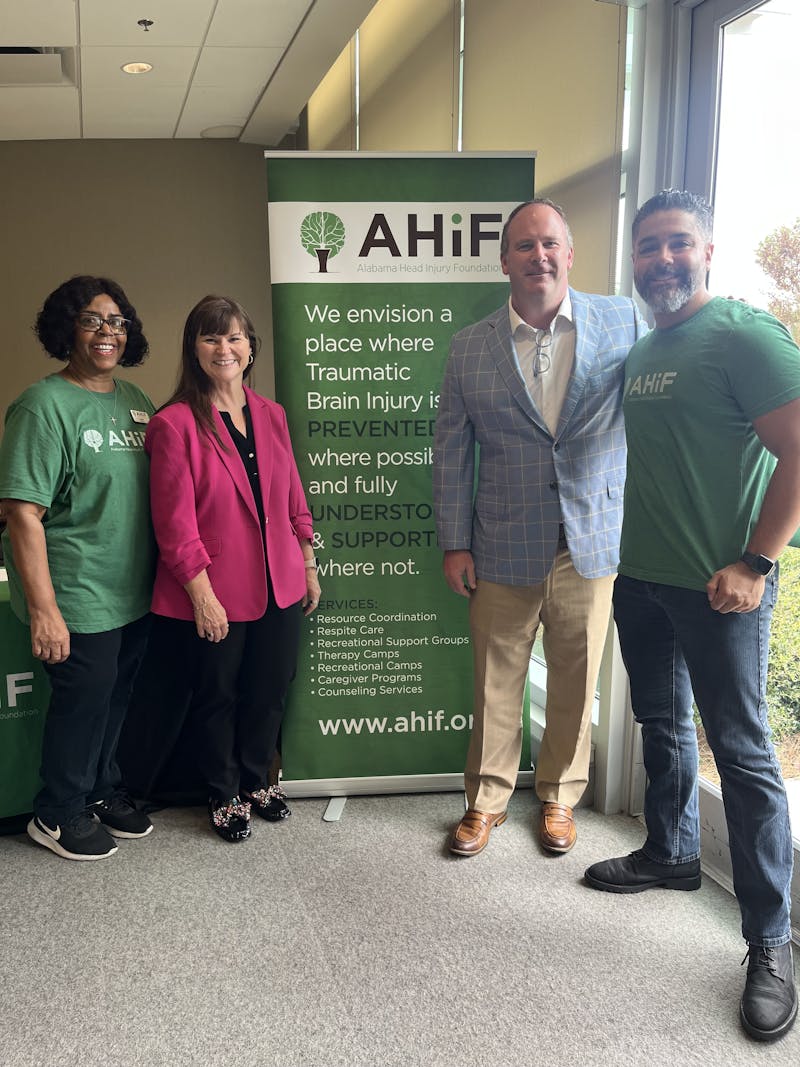
Erik Heninger and Brandy Robertson, attorneys at Heninger Garrison Davis (HGD), were recently honored to speak with caregivers of traumatic brain injury (TBI) survivors at the Bright Ideas Camp, hosted at the Lakeshore Foundation in Birmingham. The camp is part of a series of therapy-based programs run by the Alabama Head Injury Foundation (AHIF), aimed at empowering survivors and supporting their caregivers through education, therapy, and long-term planning.
Heninger and Robertson, both deeply engaged with AHIF in leadership and advocacy roles, brought their legal insight and compassionate perspective to a group of caregivers who often bear the emotional and logistical weight of brain injury recovery. Their participation reflected both HGD’s commitment to white-glove client service and the firm’s specialty focus in traumatic brain injury litigation.
What Is Bright Ideas Camp?
The Bright Ideas Camp is a therapy-driven retreat designed to re-energize survivors and caregivers of traumatic brain injuries. It offers a multi-disciplinary experience, pairing survivors and their families with student teams from programs such as physical therapy, occupational therapy, speech-language pathology, and social work. These teams collaborate to develop actionable therapy and support plans that participants can take home and continue implementing.
Originally launched by AHIF to fill a gap in post-injury recovery—particularly for those two or more years removed from their initial trauma—the camp places equal emphasis on caregivers, acknowledging the toll that long-term caregiving can take. As such, it includes specialized sessions addressing legal rights, emotional resilience, advocacy, and caregiver health. The partnership with the Lakeshore Foundation, a nationally recognized rehabilitation and fitness facility, adds a unique depth to the program’s offerings.
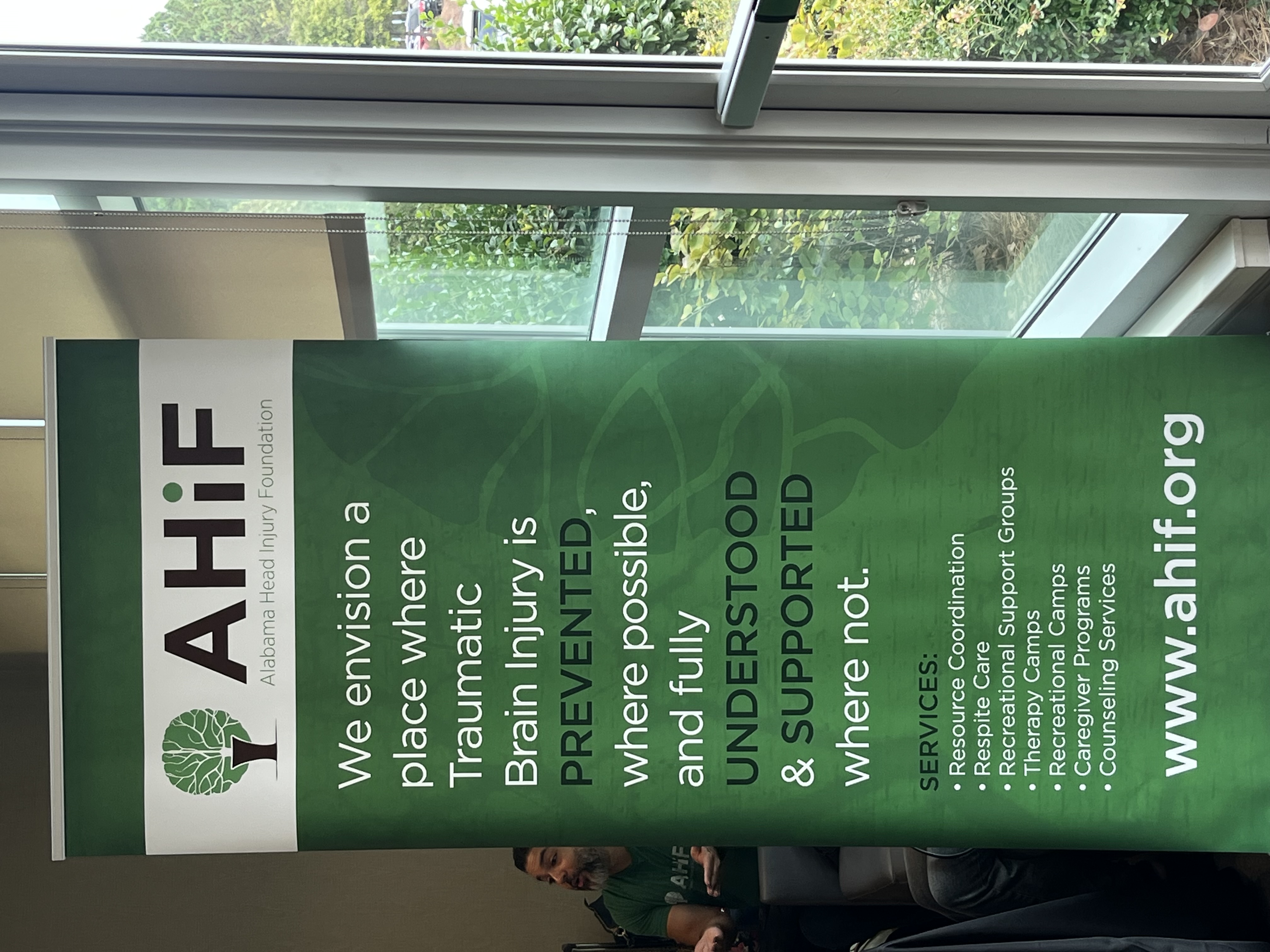
A Continued Partnership with AHIF
Erik Heninger and Brandy Robertson have long been involved with the Alabama Head Injury Foundation, both as advocates and contributors. Their relationship with the organization includes speaking engagements, legal guidance for families, and leadership in outreach efforts across the state.
Founded in 1983, AHIF has grown into Alabama’s premier nonprofit supporting TBI survivors and their families. The foundation provides essential services such as resource coordination, support groups, therapy programs, respite care, and education—all at no cost to clients. HGD's involvement reflects a shared mission: ensuring survivors and their caregivers receive not only compassionate care but also practical tools and advocacy to move forward.
Through their roles, Heninger and Robertson have sought to bridge the often-overlooked connection between legal strategy and healthcare outcomes. Their leadership within AHIF and commitment to community-based care are natural extensions of HGD’s broader vision—to be more than a law firm, but a trusted partner in the recovery journey.
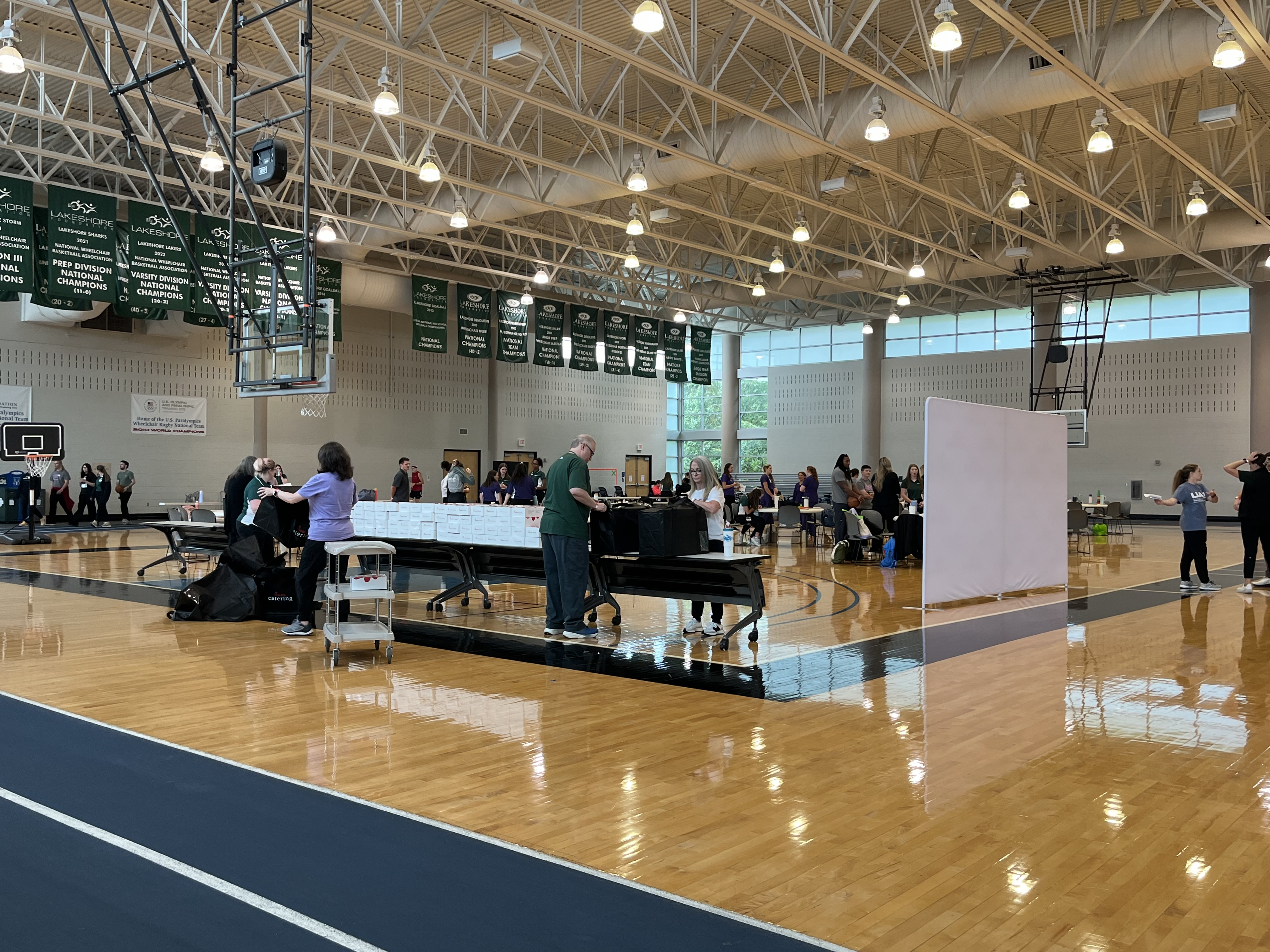
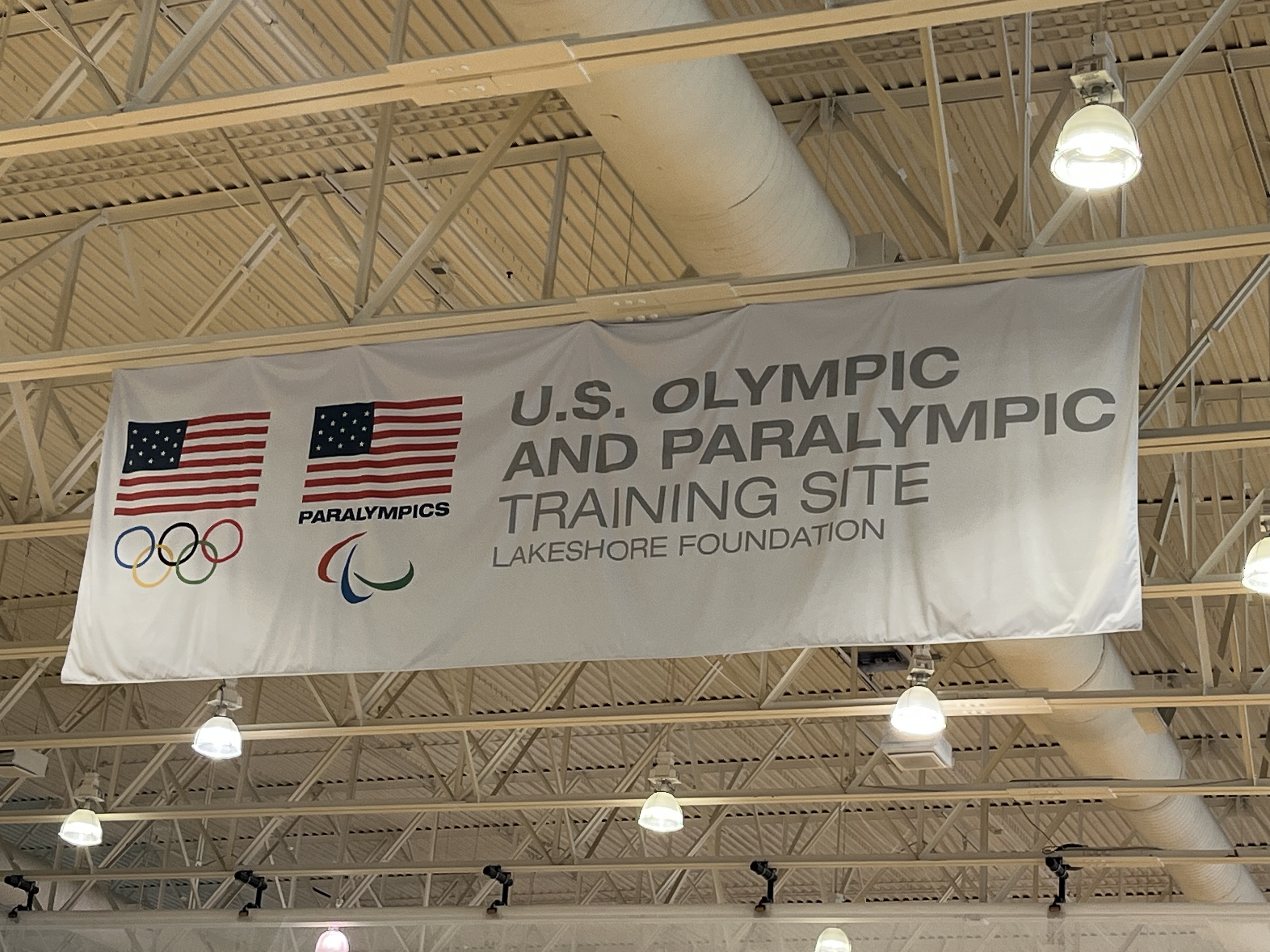
TBI as a Specialty Practice Area at HGD
HGD has made traumatic brain injury a cornerstone of its personal injury practice for one reason: these cases require not only technical legal skill but a deep understanding of the long-term effects brain injuries have on individuals and families.
Brain injuries often affect more than just cognition. They can disrupt speech, mobility, memory, emotional regulation, and relationships. The road to recovery is rarely straightforward, and it typically involves extensive medical treatment, rehabilitation, financial strain, and emotional upheaval.
Heninger and Robertson’s presence at Bright Ideas Camp underscores the firm’s holistic approach. They don't just represent TBI survivors in court—they walk alongside them throughout their journey, helping them navigate the legal, financial, and logistical aspects of life after injury. This approach is core to HGD’s white-glove service model and commitment to their core values.
Speaking to the Caregiver Experience
During their session at the camp, Heninger and Robertson focused on equipping caregivers with knowledge, support, and encouragement. They addressed legal considerations such as:
- Guardianship and power of attorney
- Disability benefits and insurance coverage
- Workplace accommodations
- Financial planning for long-term care
- Risk management and personal advocacy
But beyond legal frameworks, they emphasized emotional sustainability. “You matter, too,” was a theme repeated throughout their talk—affirming that the caregiver’s health, emotional well-being, and sense of community are vital components of effective care.
They encouraged caregivers to:
- Stay informed about their legal rights and available resources
- Develop sustainable routines that prioritize their own well-being
- Advocate boldly within medical, legal, and educational systems
- Build and rely on a support network
- Embrace their role not only as caregivers but as agents of change
The feedback from caregivers was deeply moving. Many shared that they felt “seen” and “understood” in ways they hadn’t in years. The emotional exhaustion in the room was real—but so was the resilience.
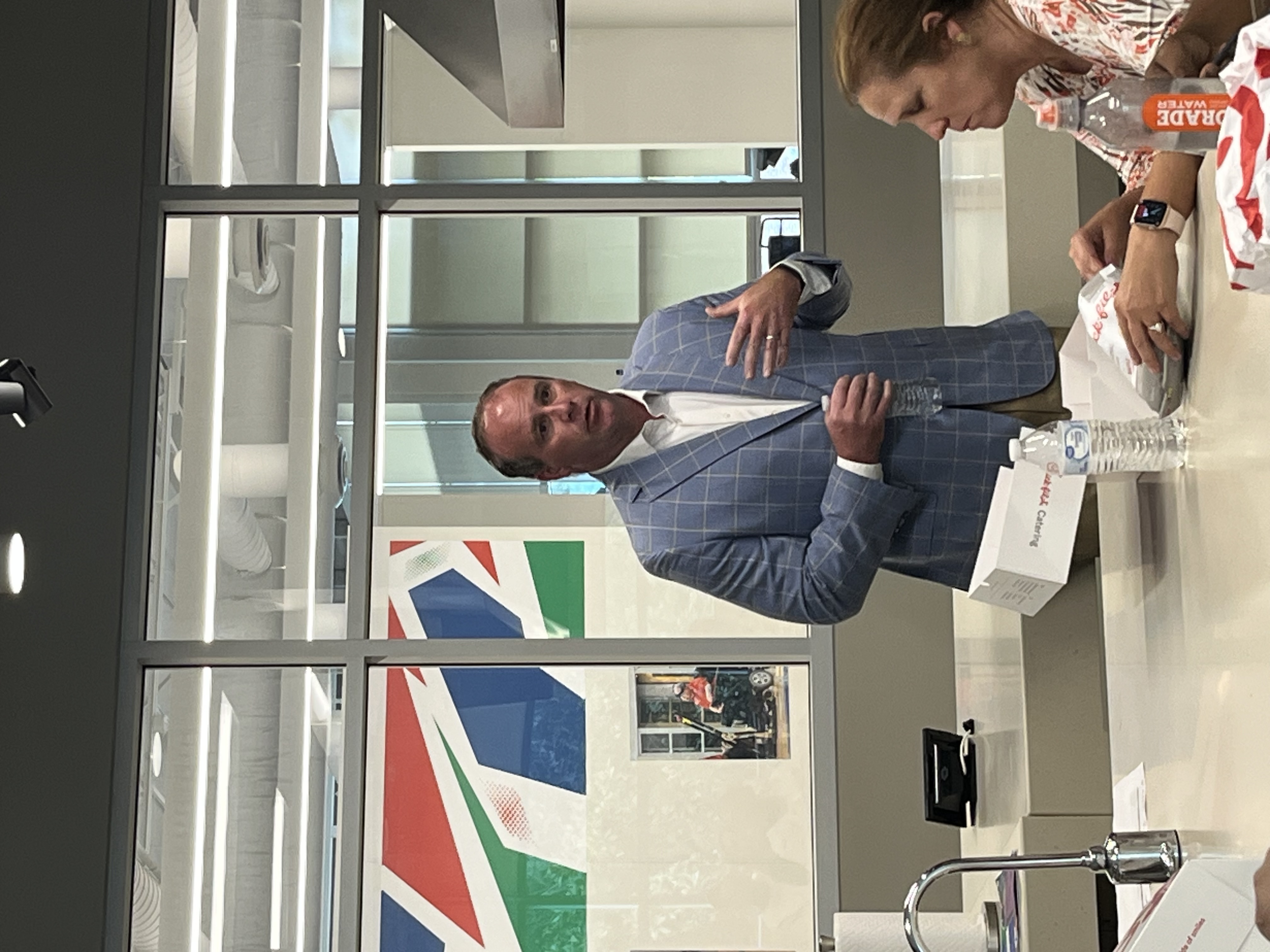
Looking Forward
The Bright Ideas Camp is not a one-off event—it’s part of a sustained effort to support Alabama families impacted by traumatic brain injury. Follow-ups, therapy progress, and continued advocacy are all part of the program’s design. That long-term mindset aligns perfectly with how HGD approaches TBI litigation and client care: not as a transaction, but as a relationship.
As HGD continues to grow its TBI practice, partnerships like the one with AHIF are more important than ever. Brandy Robertson and Erik Heninger will continue to support camps, educational programs, and legislative advocacy that uplift survivors and caregivers across the state.
To caregivers reading this: HGD recognizes your strength, your sacrifice, and your essential role in the recovery process. You are not alone—and you don’t have to walk this road without support. Through continued collaboration with AHIF and other dedicated partners, HGD remains committed to standing with you every step of the way.

